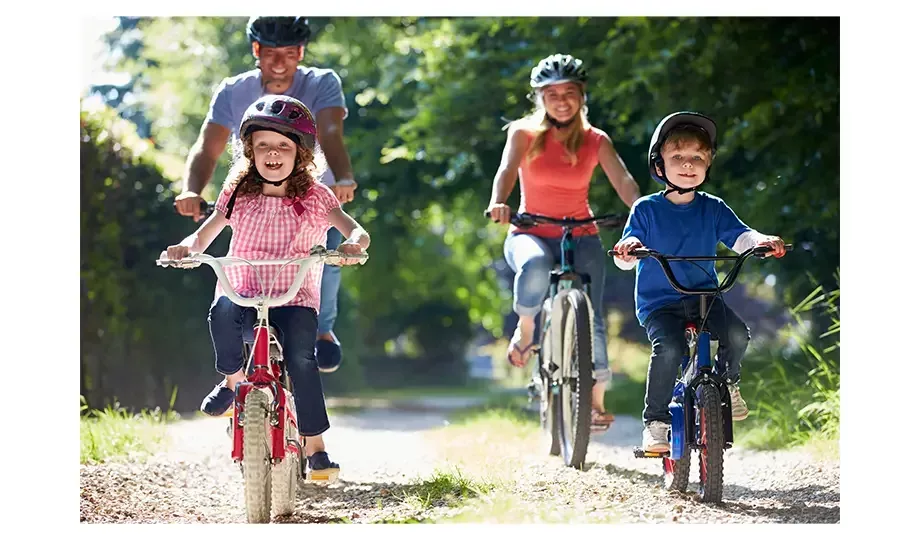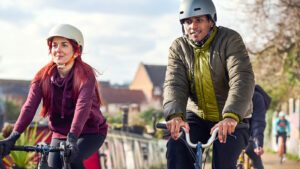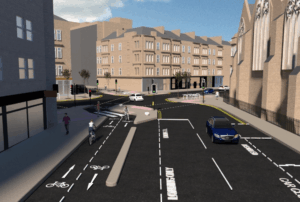Cycling is an active and environmentally friendly way for schoolchildren to travel and stay healthy, but with only 3% of 5 to 16-year-olds cycling to school in England, it could be parents who are standing in the way, according to new research.
A new study from Brunel University London shows that children’s cycling frequency is strongly influenced by their parents’ cycling behaviour.
Childhood obesity is a major public health issue, and recent evidence suggests that higher levels of active travel to and from school, such as walking and cycling, are associated with greater moderate-to-vigorous physical activity in children.
New research from Brunel University London studied parental attitudes towards cycling and their children’s active travel behaviour.
Dr Daniel Bishop, a senior lecturer at Brunel who led the research, said: “Active travel such as cycling presents an ideal context for children and young people to incorporate physical activity into their daily routines.”
“Attitudes and physical activity are correlated, and a parent’s positive cycling behaviour and attitudes can serve as a model for their children.”
Dr Bishop stressed the importance of a parent’s motivation to cycle and their social support for cycling – having friends, family or colleagues who cycle. “Our research findings suggest that children’s and parents’ motivation to cycle, and social support for parental cycling, may supersede environmental and physical barriers such as safety concerns and unsupportive infrastructure” he said.
The new study, published in the Journal of Transport and Health, involved 246 school children in West London aged 9 to 15 and their parents.
As part of the research, parents completed an online survey with their child, in which they reported their cycling behaviour, their motivation to cycle, and social and physical opportunities and barriers to cycling.
To measure the participants’ motivation for cycling, they were also asked to indicate their agreement with adjectives that described their attitudes towards cycling.
“The results of the study showed that parental attitudes are strong determinants of a child’s active travel patterns,” said Dr Bishop.
“A child’s cycling frequency was also impacted by their parent’s cycling frequency: the more a parent cycled, the more their child cycled. Whilst this will not come as news to those involved in the cycle training industry, it is useful to have statistical evidence to show the influence of parental behaviour and attitudes on their children’s behaviour.”
“Having friends who cycled on roads, having access to a roadworthy cycle and positive motivations for cycling also contributed to whether the participants cycled.”
Dr Bishop discussed future interventions to encourage cycling. “Because of the parental influence involved in children’s cycling habits, cycling interventions that focus on parents rather than children may be an effective means to increase children’s cycling and physical activity,” he said “However, interventions designed to enhance children’s and parents’ attitudes towards cycling may also be effective for promoting active travel behaviour change – and therefore increasing physical activity levels.”
‘Barriers and Enablers for Cycling: A COM-B Survey Study of UK Schoolchildren and their Parents’, by Daniel Bishop, Prathiba Natesan Batley, Huma Waheed, Tamara Dkaidek, Gabriela Atanasova and David Broadbent, is published in the Journal of Transport and Health.























